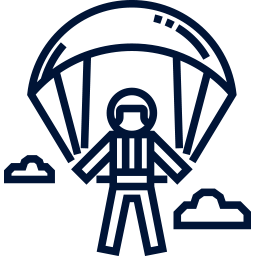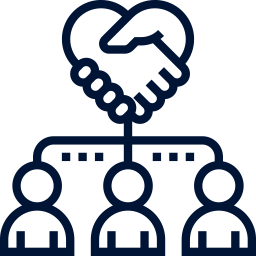IPA Parnters
How to get support
1

Learn about our services
Read up on our services for individual support, NDIS, personal care, and social and lifestyle support.
2

Enquire with PHM Health
Using our contact form, enter your details so we know how we can best assist you.
3

Await a response
That’s all. A support worker will be in contact with your preferred contact method within (x) business days.
Social and Lifestyle Support
Lorem ipsum dolor sit amet, consectetur adipiscing elit, sed do eiusmod tempor incididunt ut labore et dolore magna aliqua. Ut enim ad minim veniam, quis nostrud exercitation ullamco laboris nisi ut aliquip ex ea commodo consequat. Duis aute irure dolor in reprehenderit in voluptate velit esse cillum dolore eu fugiat nulla pariatur. Excepteur sint occaecat cupidatat non proident, sunt in culpa qui officia deserunt mollit anim id est laborum.
Commonly asked Social and Lifestyle Support questions
Update with a FAQ here
What to do?
If you have recently travelled or think you may have been in contact with the coronavirus, it is important that you contact us on 0411 497 559 or admin@phmhealth.com.au
Need advice or to get tested?
If you have symptoms, get tested at a Covid-19 clinic. Symptoms include fever, cough, sore/scratchy throat, shortness of breath, loss of taste or smell. Self-isolate until you get your results.
If you need advice or have questions, call the National Coronavirus Health Information Line on 1800 020 080. If you require translating or interpreting services, call 131 450.
Update with a FAQ here
Essential support
Essential support includes the activities outlined by the government as being acceptable. This includes going shopping for essential needs (food, medication etc.), going to medical appointments, and exercising outside in groups of no more than two.
Non-essential support
Non-essential supports are those that you can live without but help you live a good life. In normal times these activities might be in your home or community such as; playing board games, movies, eating out, social outings, outdoor activities and cooking together.
Update with a FAQ here
Introduction
PHM Health acknowledges that these are unprecedented times. This policy is communicated with the intention of setting expectations about how PHM Health Support Workers should be working to reduce the risk of contracting and spreading coronavirus (COVID-19). We all have a duty of care to ourselves and the people we support to take reasonable care of our own health and safety and to not adversely affect the health and safety of others.
This policy applies to support that generally applies to Support Worker and People Seeking Support who are considered to be at low or no risk of COVID-19 as per the following:
Support Worker and Person Seeking Support have not travelled internationally; Support Worker and Person Seeking Support have not had any close contact with someone who has a confirmed case of coronavirus; and Support Worker and Person Seeking Support do not have any symptoms of being unwell e.g. coughing, fevers, difficulty breathing, etc.
Your safety
The safety of our community is very important to us. We want to ensure that people with disability receive the support they need from support workers who are operating safely. If you have any concerns, please contact us asap.
PHM Health will continually monitor relevant information sources and update our policies as required. By following the below recommendations, you will be complying with the Australian Government and the World Health Organization’s guidelines. Further information can be accessed at https://www.health.gov.au/.
If you have been exposed to someone who has returned a positive result for COVID-19 testing or is at risk of COVID-19 due to exposure to a confirmed case or returning from overseas travel, please contact PHM Health immediately for further instruction and support.
There is no work restriction on Support Workers who are casual contacts of COVID-19 cases and are well, including those who have provided direct care for confirmed cases while using adequate personal protective equipment (PPE). In this instance, health care workers should self-monitor for symptoms and self-isolate if they become unwell until COVID-19 is excluded.*
*Based on the Department of Health information document Information on work attendance and testing for health and residential aged care workers
Protection Measures for Everyone
You can reduce your chances of contracting or spreading COVID-19 by following some simple precautions:
Regularly and thoroughly wash your hands with soap and water including before and after eating and after going to the toilet. See below for more information on safe hand washing.
- Carry an alcoholic-based hand sanitizer when you are out of the home and clean your hands regularly
- Clean and disinfect surfaces regularly including frequently used objects such as mobile phones, keys, and wallets
- Maintain at least 1.5 metres (3-feet) distance between yourself and anyone who is coughing or sneezing
- Make sure you, and the people around you, follow good respiratory hygiene. This means covering your mouth and nose with your bent elbow or tissue when you cough or sneeze. Then dispose of the used tissue immediately
- Avoid touching eyes, nose and mouth
- Increase the amount of fresh air by opening windows
- Wash your clothes at the end of every shift/day
- Moisturise hands to prevent dry skin
- Cover any breaks in your skin e.g. using a bandaid
- Keep your fingernails short and avoid using artificial nails
- Stay home if you feel unwell. If you have a fever, cough and difficulty breathing, stay more than 1.5 metres away from others and seek medical attention, calling in advance. Follow the directions of your local health authority
- Practice social distancing by avoiding handshaking and other physical greetings, consider what travel and outings are necessary and go to open places such as parks.
Utilising PPE in a safe and responsible way
PPE is one way to create a barrier between yourself and the virus. You can reduce your chances of contracting or spreading COVID-19 by utilising relevant PPE according to the situation you’re managing:
- Only wear a mask if you are ill with COVID-19 symptoms or are supporting someone who might have COVID-19. Disposable face masks can only be used once and should be disposed of after use
- You can still pick up COVID-19 contamination when wearing rubber gloves and infect yourself by touching your face. Good hand hygiene provides greater general protection against COVID-19 than rubber gloves. If you are working with someone who has a confirmed case or is at risk of having exposure to COVID-19, please refer to Providing Support where there is a confirmed case
Safe hand washing
The World Health Organisation guidelines for handwashing recommend singing ‘happy birthday’ twice. While singing, the following steps should be followed:
- Wet hands with water and apply enough soap to cover all hand surfaces
- Rub hands palm to palm, then right interlace fingers and rub
- Palm to back of hand interlacing – both sides
- Rotating hand around thumb – both sides
- Cup hand and rotate fingers of the opposite palm of the hand – both sides
- Rinse hands with water, palms facing down
- Dry thoroughly with a single-use towel.
- Turn the tap off with the towel and dispose.
When providing support, adopt the 5 moments handwashing principle.
- Before touching the person you are supporting – this is done upon entering the work zone
- Before providing direct contact support
- After providing direct contact support
- After touching the person you are supporting
- After touching the persons surrounds
If you are unable to wash your hands before entering the home. Ensure you have hand sanitizer made up of at least 60% alcohol.
How Accountants are using Ceezar

Learn New Technologies

Learn eCommerce

Begin Advisory Services

Build Digital Knowledge

Build Clients Businesses

Help SME Clients Survive

Purse Accountancy Firm Longevity

Strengthen Client Relationships
Stay up to date with the latest news

